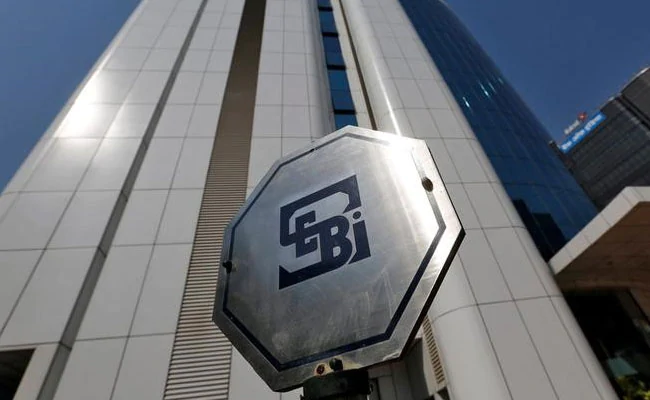Templeton’s India Closures Shine Unkind Light On Regulator SEBI

[ad_1]
The courtroom drama over shutting down six of Franklin Templeton’s local Indian mutual funds will soon come to an end, but the denouement shines an unkind light on how the country is running its capital markets.
Almost 97% of unitholders have voted in favor of winding up the plans, which the U.S. fund house abruptly put into suspended animation during a nationwide Covid-19 lockdown last April. But what choice did investors really have?
As the website Moneylife reported, the Yes button in the e-voting form promised “a potential to realize fair value.” The option marked No threatened a “distress sale of assets.” In deference to behavioral economist Richard Thaler’s Nudge theory, the alternatives were color-coded green and red, respectively.
More than the nudge, however, it’s the winks that can do long-term damage. Unitholders were scared into voting, as Moneylife editor and shareholder activist Sucheta Dalal put it, “without any information about the extent of loss, the culpability of fund managers, the failure of trustees, what investors can hope to get back and the payment schedule.” It was the regulator’s job to insist on these details, and the failure to do so won’t inspire confidence.
For years now, faith in the integrity of India’s markets has hemorrhaged, with everyone from rating firms to auditors, fund managers and trustees putting their own commercial interests above – and often against – those of the investing public. The Templeton episode was yet another opportunity to start setting things right. By the looks of it, the chance has been blown.
When I first wrote about the now-failed mutual funds in late 2018, it was in the context of their bet on then-Yes Bank Chief Executive Officer Rana Kapoor’s family investment vehicle. Nominally, the exposure was via zero-coupon bonds, but they didn’t trade and in most cases were held in their entirety by Templeton. Worse, this was symptomatic of an industry that had come around to stuffing risky, illiquid securities in short-maturity debt mutual fund portfolios to make their yields look attractive.
By then, the game of artificial performance enhancement was already in extra time. The sudden bankruptcy of the IL&FS Group, a large infrastructure financier, in September 2018 had paralyzed credit markets. The Securities and Exchange Board needed to urgently rein in errant debt funds. It remained asleep at the switch even as Yes Bank collapsed and had to be bailed out, Kapoor was taken into judicial custody, and Templeton pleaded for higher borrowing limits to meet redemption pressure, a request SEBI perplexingly granted.
Then the pandemic came, and the Templeton funds went into limbo with $4 billion in assets under management. They have since received a little under $2 billion from maturing investments, prepayments and coupons. One has outstanding borrowings. The remaining five, which have turned cash positive, are in a position to return $1.26 billion, “subject to fund-running expenses.” Franklin said in April that it won’t take management fees from plans that are being shuttered, and regulations do allow it to charge costs. SEBI must still question the fairness of making unitholders pay for a forced haircut.
Beyond that, there must be consequences. Deepak Shenoy, CEO of Bangalore-based wealth manager Capitalmind, suggests taking away two years’ worth of Templeton’s past fees as fines – and paying it out to distressed investors. But how interested is SEBI in really wielding the regulatory stick? Not very, if a $2 million penalty on Mukesh Ambani in a 13-year-old case of alleged manipulative trading is anything to go by. India’s richest man has a net worth of $79.5 billion.
After being lambasted by the judiciary for acting as a “silent spectator,” the regulator is still opposed to making Franklin’s audit report public, according to proceedings this week in India’s Supreme Court, which is hearing challenges to the voting on fund closures and will decide on distribution of money.
This secrecy is indefensible. The public has lost hard-earned savings at a very difficult time. It has a right to know why and how things came to such a sorry pass.
Failures like IL&FS, Yes Bank and Templeton have been absorbed by the Indian financial system, but at a cost. The cracks in confidence have had to be papered over with an abundance of liquidity that poses its own risks to economic stability. It’s time regulators took their jobs more seriously.
Earlier this month, the Economic Times described how foreign institutional investors were miffed with insider trading in block deals, a separate trading window for large chunks of shares to change hands. “We need to boost transparency in the capital market,” the editorial said. That’s hardly a new complaint. Last year saw the release of Scam 1992, a web series based on Dalal and her partner Debashis Basu’s uncovering of a scandal that had an enormous impact on the financial landscape that emerged in its wake. India’s markets have grown much bigger and more complex since then. Several years of institutional lethargy could unravel decades of painstaking reforms.
(Andy Mukherjee is a Bloomberg Opinion columnist covering industrial companies and financial services. He previously was a columnist for Reuters Breakingviews. He has also worked for the Straits Times, ET NOW and Bloomberg News.)
Disclaimer: The opinions expressed within this article are the personal opinions of the author. The facts and opinions appearing in the article do not reflect the views of NDTV and NDTV does not assume any responsibility or liability for the same.
[ad_2]
Source link

